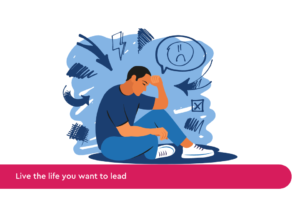We all want our wellbeing initiatives to deliver purpose and meaning to those we work with. Good organisations want to actively enhance the lives of their teams – so here are a few places you can start.
De-stigmatise death
Normalising death should be at the top of everyone’s list. Death is part of life and it requires preparation. Offering ‘Death in Service’ as part of your HR benefits can offer people and their families peace of mind. Death in Service can, rather ironically, throw a lifeline to loved ones – especially if the person who died was the main breadwinner of a household. Typically, the Death in Service benefit is 2-4 times a person’s salary paid as a lump sum if the person dies while employed by a company (as opposed to dying while working). It can help widen a family’s financial safety net and bring a great sense of security at a time when people need it the most.
At huunuu, our compassionate team can teach you how to normalise talking about death with your staff. Our Big Conversation Work Mat is popular with companies looking to improve transparency and build a strong community within the workplace. Our Big Conversation Cards have also proven to be a big hit with companies, enabling individuals to find out what matters most in their lives and what they want from life (including their career!). Listening to one another’s stories can be a wonderful way to connect with employees and get them talking about difficult subjects.
Talk to your team
Arguably one of the best ways to find out what your team wants and needs from a well-being programme is to ask them directly. Some employees may feel a little shy about voicing their suggestions, so it could be a good idea to encourage them to write them down anonymously. Better yet, foster a supportive working environment where all employees feel confident enough to share their ideas. Some people may worry that making their own suggestions could get them in trouble or have some other negative consequence. It’s vital to make sure you create a company culture where everyone’s view is respected and taken into account.
It’s important to remember that all perks have the potential to directly benefit the business. For example, you could provide remote and flexible workers with a home office budget they can use to redecorate their space. If people have a designated workspace designed according to their personal tastes, it can significantly boost employee wellbeing and productivity. Anything that makes someone’s life easier, means they will be able to put in more effort in their job – a win-win for everyone!
Write a ‘happy list’
Creating a personliased wellbeing programme shouldn’t just involve financial incentives. Sit down with your team, whether in person or over a video call, and get them to write a ‘happy list’ or a ‘bucket list.’ Not only is this incredibly therapeutic, but it also helps your HR team discover what your employees want from their work-life balance.
For example, some employees may have a life goal of “running a 10k.” You can help employees achieve this with a free gym membership or by providing an on-site gym. After all, everyone loves a healthy, happy workforce! Or if some of your employees dream of travelling the world, you could offer more paid holidays and even a holiday allowance. In the Netherlands, for instance, each employee receives “vakentiegel.” This is a payment of 8% of the employee’s salary paid either all at once or over 12 months. Many Dutch people use this payment towards a holiday – in fact, many Dutch businesses highly encourage this because it means their staff return refreshed and ready to do their best at work.
Employee turnover and retention are more important than ever for so many companies. Helping your employees achieve their dreams both inside and outside of work can be a fantastic way to make sure you keep them happy and reward them properly for their hard work.
Dealing with the hard times
Processing trauma and handling grief is something most of us will encounter in our lives. Of course, a wellbeing programme isn’t just for the good times. Employee wellbeing programmes really can help people deal with the tougher times in life. It’s a good idea to make sure you have counselling, or another talking therapy, in place. This will give people a safe space in which to talk about their worries to someone outside of friends and family. Talking therapies are available in all sorts of ways, such as in-person, telephone calls or video calls, so you have the capacity to give your employees more choices depending on their preferences, lifestyle and schedule.
Truly flexible working hours can also work wonders when it comes to designing a personalised wellbeing programme for your employees. Flexible working doesn’t have to mean working from home, though it can involve that. It merely involves employees choosing their own working hours – which is particularly useful for people with children or people who are carers for a loved one. There are so many ways to approach flexible working including, but not limited to:
- working between core hours (e.g. 8 hours between the hours of 8am and 6pm)
- compressed work hours (e.g. Mon – Thurs 8:30am to 6pm, Friday off)
- annualised hours (e.g. fulfilling a certain amount of hours per year – including weekends and bank holidays if the employee wants to)
- hybrid working
- work from home full-time
- Mental Health/Wellbeing Hour (designating an hour a week during the working day where employees do something to improve their wellbeing. This could be meditation, yoga, reading a book or even taking a nap!)
A flexible working plan can significantly boost productivity and motivation. It also allows breathing space for stressful times in life such as sorting out childcare, pet care and dealing with family/friend emergencies.
Find out how huunuu can provide you with the tools and products to nurture a personally tailored wellbeing programme for your team. Get in touch with us at [email protected]
Written by Guest Blogger, Beth Kennedy-Escott




